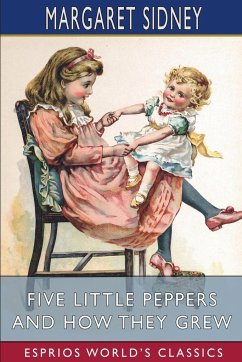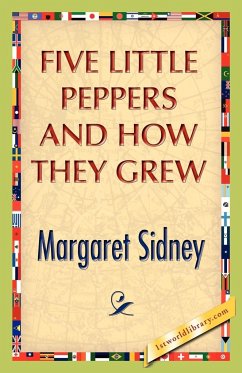Margaret Sidney was the pseudonym of Harriett Mulford Stone (1844-1924). She was an American author, born in New Haven, Connecticut. In 1878, at the age of 34, she began sending short stories to Wide Awake, a children's magazine in Boston. Two of her stories, Polly Pepper's Chicken Pie and Phronsie Pepper's New Shoes, proved to be very popular with readers. The success of Harriett's short stories prompted her to write the nowfamous Five Little Peppers series. This series was first published in 1881, the year that Stone married Daniel Lothrop. Daniel had founded the D. Lothrop Company of Boston, who published Harriett's books under her pseudonym, Margaret Sidney. Harriett eventually wrote over 30 books; in addition to the Five Little Peppers.








